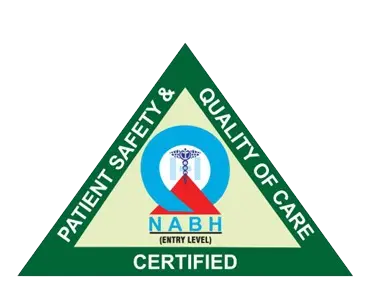Urology is a specialized field of medicine that deals with the diagnosis and treatment of conditions related to the urinary system and male reproductive system. The urinary system includes the kidneys, ureters, bladder, and urethra, while the male reproductive system includes the testes, epididymis, vas deferens, prostate gland, and seminal vesicles. Urological conditions can range from mild and easily treatable to severe and life-threatening. Timely intervention is critical to prevent complications and maintain optimal health.
In this article, we will discuss the signs and symptoms that may indicate the need for a urologist’s evaluation and the importance of seeking medical attention promptly.
Section 1: Understanding Urology
Urology is a medical specialty that focuses on the diagnosis and treatment of conditions related to the urinary system and male reproductive system. This includes organs such as the kidneys, bladder, prostate gland, and testes. Urologists are medical doctors who have completed additional training in urology and specialize in the diagnosis and treatment of these conditions.
One of the primary roles of a urologist is to diagnose and treat conditions related to the urinary system, such as urinary tract infections, kidney stones, and bladder cancer. They are also experts in diagnosing and treating conditions related to the male reproductive system, such as infertility, erectile dysfunction, and prostate cancer.
Section 2: Signs and Symptoms to Watch For
- Pain or discomfort during urination: This may be a sign of a urinary tract infection, bladder inflammation, or prostate problems.
- Frequent urination: If you find yourself needing to urinate more often than usual, it may be a sign of a urinary tract infection or an overactive bladder.
- Blood in urine or semen: This may be a sign of a urinary tract infection, prostate problems, or even bladder or prostate cancer.
- Erectile dysfunction: Difficulty achieving or maintaining an erection can be a sign of an underlying condition, such as diabetes, heart disease, or prostate problems.
- Testicular pain or lumps: Pain or lumps in the testicles can be a sign of an infection or a more serious condition such as testicular cancer.
- Incontinence or leakage: If you are experiencing urinary incontinence or leakage, it may be a sign of an underlying condition such as overactive bladder or prostate problems.
- Kidney stones: Pain in the lower back or side, nausea, and vomiting may be a sign of kidney stones.
- Urinary tract infections: Symptoms of a urinary tract infection may include pain or burning during urination, a frequent urge to urinate, and cloudy or strong-smelling urine.
- Prostate issues: Difficulty starting or stopping urine flow, weak urine flow, and frequent nighttime urination may be signs of prostate problems such as an enlarged prostate or prostate cancer.
Section 3: When to Seek Medical Attention
- If you experience severe pain or inability to urinate, seek immediate medical attention as this may be a sign of a serious condition that requires urgent treatment.
- If you experience any of the signs or symptoms discussed in Section 2, but they are mild or moderate, you should still seek medical attention promptly, but it may not require emergency care.
- If you have risk factors such as age or a family history of urological conditions, you should schedule routine urological check-ups even if you are not experiencing any symptoms.
How Urology Can Help.
Urology can be effective in diagnosing and treating the signs and symptoms related to the urinary system and male reproductive system. The treatment options vary depending on the condition, severity, and individual factors such as age and overall health.
For example, urinary tract infections are typically treated with antibiotics to clear the infection. Pain relievers and increased fluid intake may also be recommended to manage symptoms. For more severe infections or those that keep recurring, additional testing may be required to identify the underlying cause.
Kidney stones may require surgical intervention to remove or break up the stones. In some cases, medications may be prescribed to help pass the stones more easily. Incontinence may be treated with pelvic floor exercises, medications, or surgery, depending on the cause and severity.
Prostate cancer may require surgery, radiation therapy, or chemotherapy, depending on the stage and extent of cancer. Erectile dysfunction may be treated with medications, such as sildenafil (Viagra) or tadalafil (Cialis), or other treatments such as penile injections or vacuum devices.
Urological conditions are often best managed with a multidisciplinary approach, involving primary care providers, urologists, and other healthcare professionals as needed. In addition to medical treatment, lifestyle modifications such as a healthy diet, regular exercise, and stress reduction techniques may also be recommended to improve overall health and prevent further complications.
Section 4: Conclusion.
If you are experiencing any of the signs or symptoms discussed in this article, it is important to seek medical attention promptly to receive an accurate diagnosis and effective treatment. At Criticare Hospital in Lucknow, we have some of the best urologists in the region who are highly skilled and experienced in diagnosing and treating a wide range of urological conditions. Our team of healthcare professionals is dedicated to providing compassionate care and ensuring optimal outcomes for our patients.
At Criticare Hospital, we understand the importance of early diagnosis and treatment in managing urological conditions. We encourage our patients to seek regular urological check-ups and communicate openly with our healthcare providers about any concerns or symptoms they may be experiencing.




